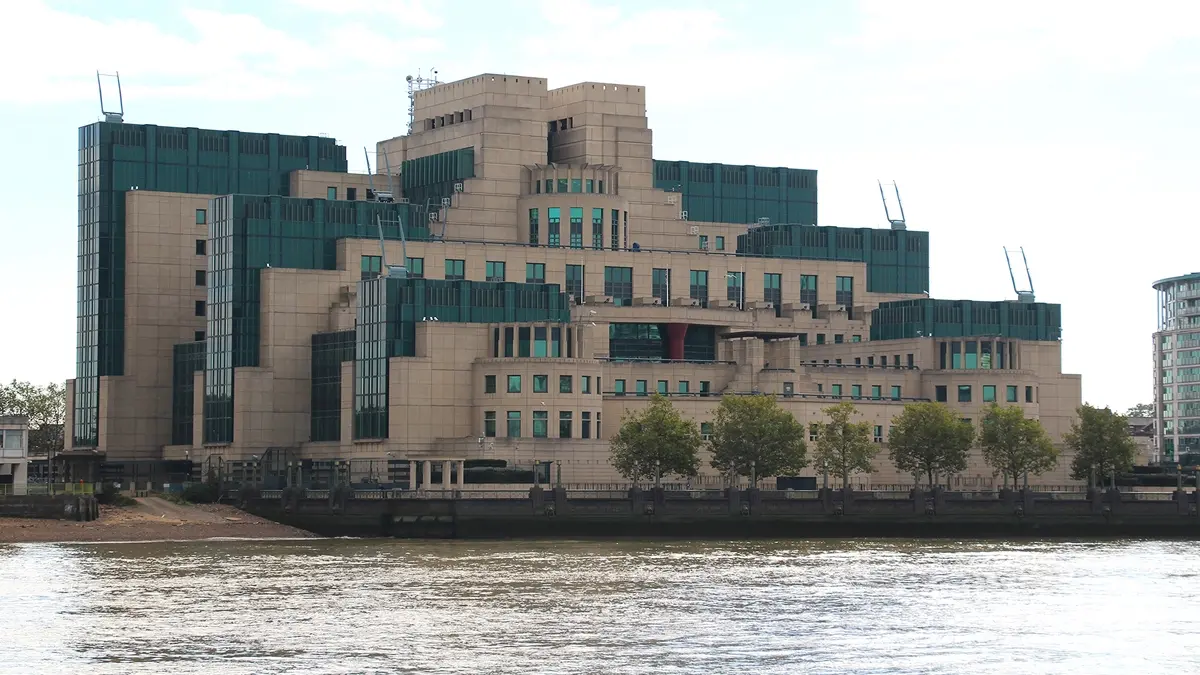“Britain has appointed 47-year-old Blessed Metrevelli as the new Chief (‘C’) of the Secret Intelligence Service (MI6), the first time in the agency’s 116-year history that a woman will hold the position. The announcement from the UK government came ahead of the G7 summit, highlighting a significant change in leadership against a backdrop of growing global threats from state and non-state actors.
A trailblazing career
Metrevelli graduated in anthropology from Pembroke College, Cambridge, before joining MI6 in 1999. During her career, she has served in operational roles in the Middle East and Europe and held director-level positions in MI5. Since 2022, she has led MI6’s Technology and Innovation Division – informally known as “Q” – leading efforts to modernise its technological capabilities.
Order of St Michael and St George’s (CMG) Met, Matrevelli is known for his field experience and technical expertise in the age of cyber espionage and digital warfare. – An important attribute.
Official commendation and order
Prime Minister Keir Starmer described the appointment as “historic”, saying:
“The United Kingdom faces an unprecedented level of threats – whether from spy ships, cyber hackers or state-sponsored sabotage. Blaise will provide the excellent leadership needed to protect our country and keep our people safe.”
Foreign Secretary David Lammy echoed this sentiment:
“At a time of global instability… where technology is power and our adversaries are working together, Blaise will ensure the UK can meet these challenges.”
Outgoing Chief Sir Richard Moore, in his support of his successor, added:
“Blaise is a highly skilled intelligence officer and leader, and one of our leading thinkers on technology. I am excited to welcome her as the first female head of MI6.”
What it signals: Agency and direction
Metrevali’s promotion reflects a clear strategic shift for MI6, aligning with sister agencies MI5 and GCHQ, both of which already have female leadership. It also breaks a long-standing symbolic barrier in fiction – notably, the “M” portrayed by Dame Judi Dench in the James Bond films – that is now reflected in real life.
Her expertise in technology signals MI6’s intention to modernise: expected to focus more deeply on cyber-espionage, AI analysis, counter-surveillance and digital counter-intelligence. Her proven track record in innovation positions the agency to stay ahead of threats from adversaries such as China, Russia and Iran, all of which have featured prominently in recent threat assessments.
Looking ahead: Shaping the future of MI6
Metrevali Richard 1 October In 2025 he will succeed Moore, whose tenure was marked by an emphasis on diversity and early warnings about geopolitical threats. Observers now expect a move towards human integration of intelligence, high-level technology and international collaboration.
Questions remain about how his leadership will balance traditional spying methods with emerging digital operations. As espionage increasingly enters the public and political sphere, his public profile could also introduce a new level of transparency and scrutiny into MI6’s secret operations.
Analysis
Blaise Metrevelli’s appointment marks both a milestone for gender equality and a strategic recalibration of MI6. His tech-forward background suggests an agency adapting to hybrid threats – where cyber, AI and human intelligence come together. As the public face of MI6, he will lead at a time when intelligence is inevitably and intensely scrutinised. will come.
His leadership will be tested by the need to modernise intelligence capabilities while navigating the legal, ethical and political landscapes. But if his track record in MI6’s “Q” branch is any indication, intelligence is likely to become smarter, faster and more resilient during his tenure.
With adversaries exploiting digital vulnerabilities and global instability on the rise, MI6 under Metrevelli could set a new standard for how modern spy agencies operate – quietly powerful, technologically agile and inclusive of Britain’s diverse national structure.
Read More: Trump Departs G7 Summit Early, Citing Escalating Israel–Iran Crisis
FAQs
This is the first time in MI6’s 116-year history that a woman has been chosen to lead the agency. The move not only breaks a symbolic barrier but also shows how Britain is embracing gender equality in leadership roles, a topic that is trending around the world.
Blaise has strong experience in cybersecurity, AI and digital intelligence. As online threats such as hacking and cyber-espionage increase, her tech expertise will help MI6 modernise and stay ahead of global challenges.
Yes. In politics, business and security, female leaders are gaining more visibility. Blaise’s appointment reflects this trend and shows how society is pushing for diversity in top decision-making positions.
He will have to balance old-style espionage with modern digital methods. The growing risks of AI abuse, cyberattacks and global instability will test his leadership. At the same time, his appointment will increase public curiosity, which means his role will face greater transparency than past heads.








Leave a Reply